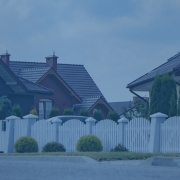Financing a Hobby Farm
Have you ever thought about harvesting your own grapes or starting your own winery? What about planting a family orchard to reap apples, pears or oranges? Buying a home in a rural or semi-rural setting with plans to use the acreage for a hobby farm is more common than you might think. When it comes to the mortgage industry, financing a hobby farm is a great option!
What is a Hobby Farm
The term “hobby” is key here as it distinguishes itself from a full-time farming operation where the primary source of income is from the farm, such as a dairy. Any income from a hobby farm is secondary income and is more of a hobby compared a producing farm or ranch. Hobby farm owners have income from other sources and while there may be income from a hobby farm it’s secondary and typically minimal.
When financing a hobby farm the income from production can’t be used to help the borrowers qualify for a hobby farm loan. Income from a traditional source must be verified much like any other mortgage program. You can be expected to provide paycheck stubs covering the most recent 30 day period as well as your W2 forms from the previous two years. If you’re self-employed you’ll need your two years’ most recent federal income tax returns both personal as well as business.
Residential Property and Other Structures
The property must be used for a primary residence and only a single-family residence can be financed. The appraiser will make note of the nature of the property and list the home as its highest and best use as a residential property and appraised as such. That also means any value coming from any commercial or agriculture origins cannot be included as part of the value. For example, a property sits on20 acres and there is an active apple orchard. The orchard generates $25,000 per year. In a straight commercial appraisal, the income generated is part of the inherent value. Yet with a hobby farm, this income is ignored.
It’s also possible however that even though the orchard generates $25,000 per year it also needs $30,000 per year in labor and production costs. In this instance, the orchard causes a loss and must be included in the borrower’s debt to income ratios. For example, with an annual $5,000 loss, that comes to $416 per month in additional debt. These are hard costs and not a loss attributed to any depreciation. The property must also not include a number of additional “outbuildings” such as large barns, storage areas or silos for instance and the appraiser notes that if there are any such structures the property could be considered agricultural and not residential and therefore ineligible for financing.
Final Ideas
The key here is to get the information about financing a hobby farm at the outset so you know the types of properties that can be financed with a hobby farm loan. Once a property meets these hobby farm criteria, the loan application is approved like most any loan program.
Curious to know more about this? I’ve helped out on several of these types of purchases. Reach out to me if you have any questions or want to know more.



